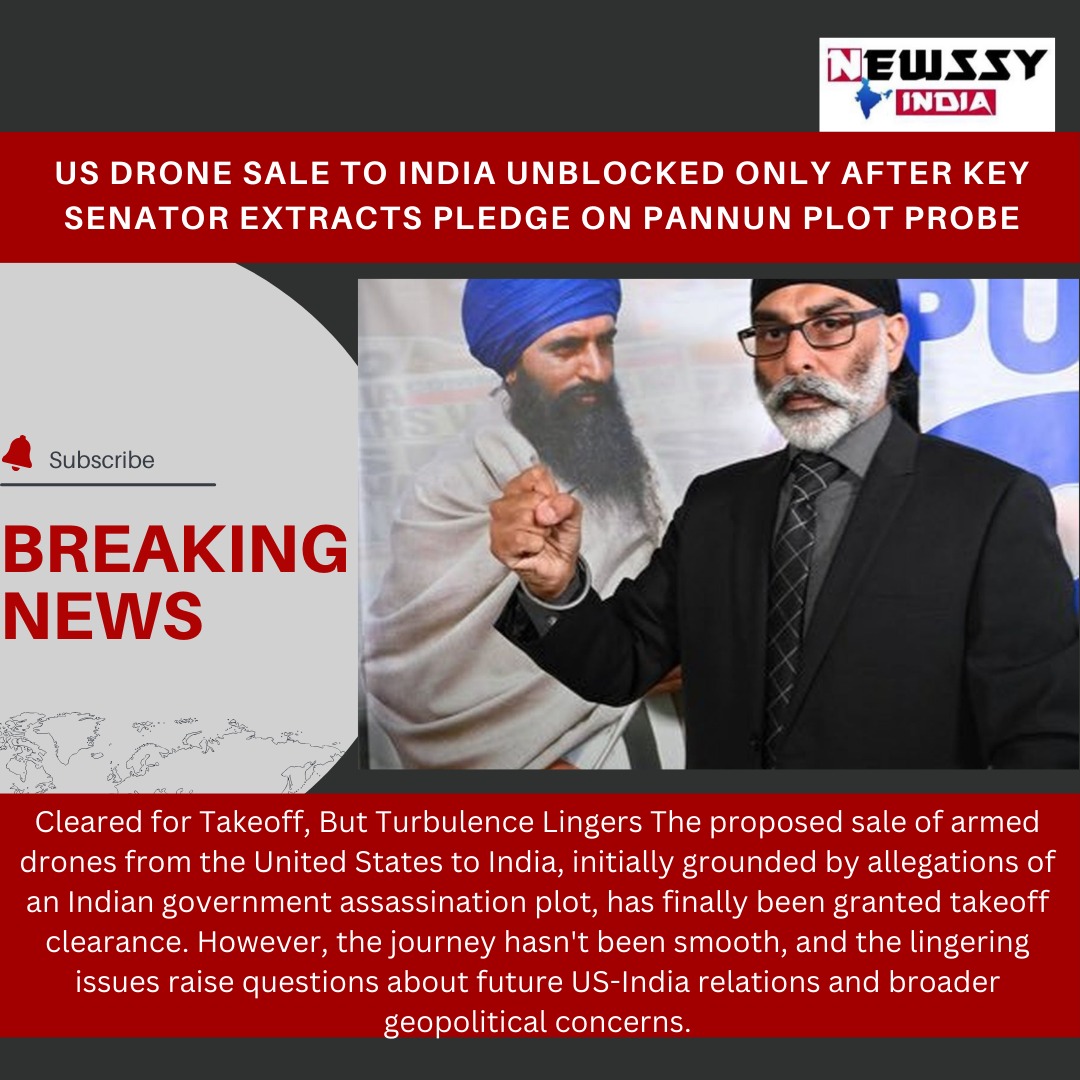United States to India, initially grounded by allegations of an Indian government assassination plot, has finally been granted takeoff clearance. However, the journey hasn’t been smooth, and the lingering issues raise questions about future US-India relations and broader geopolitical concerns.
The Deal and the Controversy:
The Biden administration initially proposed selling MQ-9B Predator drones to India, a move seen as bolstering their military capabilities and deepening strategic ties. However, Senator Ben Cardin, Chair of the Senate Foreign Relations Committee, placed a hold on the deal in December 2023. His concern stemmed from a 2021 FBI investigation into an alleged plot by an Indian intelligence agency to assassinate a Khalistani separatist leader on US soil.
This accusation sent shockwaves through the diplomatic landscape, raising concerns about human rights violations, international law, and the potential misuse of advanced weaponry. India vehemently denied the allegations, calling them “baseless” and “misinformation.” Nonetheless, the controversy stalled the drone sale, highlighting the complexities and potential pitfalls of US-India military cooperation.
Clearing the Hurdle:
Senator Cardin lifted his hold after receiving assurances from the Biden administration that they would conduct a thorough investigation into the assassination plot allegations. However, his statement emphasized that “accountability is essential,” leaving a clear message that future cooperation remains contingent on transparent investigation outcomes.
Lingering Concerns and Unanswered Questions:
While the immediate hurdle is cleared, several important questions and concerns remain:
Transparency and accountability: The nature and extent of the US investigation remain unclear. Will the findings be made public? What actions will be taken based on the results? Lack of transparency could fuel distrust and hinder future cooperation.
Human rights and potential misuse: The assassination plot allegations raise concerns about India’s commitment to human rights and responsible use of military technology. Can safeguards be put in place to ensure the drones are not used for extrajudicial killings or human rights violations?
Geopolitical implications: The episode highlights the delicate balance in US-India relations. While both nations share strategic interests, concerns about human rights and potential misuse of technology can create friction. Finding a sustainable balance will be crucial for navigating the complex geopolitical landscape.
Looking Ahead: A Bumpy Road Persists
The drone deal may be back on track, but the journey ahead is likely to be bumpy. The investigation into the assassination plot allegations holds immense significance, and its outcome will shape the future trajectory of US-India relations. Both nations must prioritize transparency, accountability, and adherence to international norms to navigate these complexities and build a more sustainable strategic partnership.
Beyond the immediate concerns, this episode presents broader questions:
Balancing strategic interests with human rights: How can the US reconcile its strategic interests with its commitment to human rights in its partner relationships?
Addressing concerns about misuse of technology: As advanced weaponry becomes more accessible, how can safeguards be established to prevent misuse and ensure responsible use?
Navigating complex geopolitical relationships: In a world defined by competing interests and evolving alliances, how can nations cooperate effectively while addressing concerns about human rights and responsible use of power?
Finding answers to these questions is crucial for building a more stable and just global order. The US-India drone deal, with its initial controversy and lingering concerns, serves as a stark reminder of the challenges and complexities involved in navigating this path.








